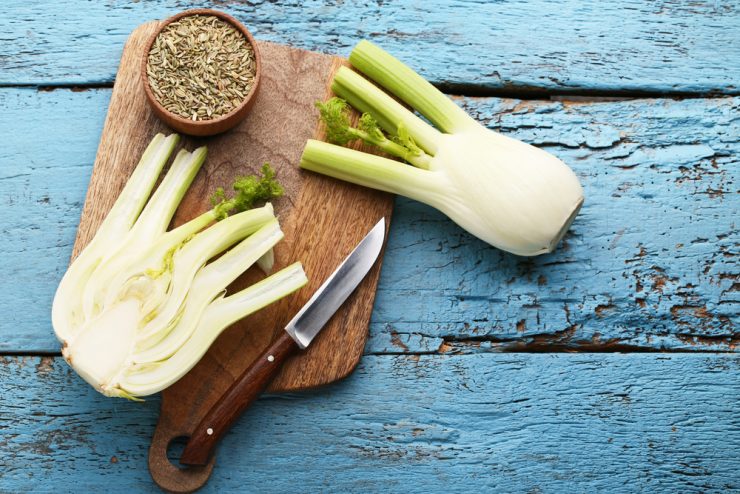Fennel (foeniculum vulgare) has a wonderful scent, which is similar to that of anise. It is widely used in herbal medicine to treat indigestion and in cooking as a flavouring.
The active ingredients in fennel are found in the leaves, stems and roots but the most concentrated source is in the seeds. These are harvested in autumn and can be used whole, ground or distilled for oil.
HISTORY
The ancient Greeks and Romans believed fennel bestowed strength, courage and longevity, valuing it as a culinary plant as well as a medicinal. In the first century AD Pliny the Elder listed fennel as a remedy for more than 20 specific complaints. The Greek physicians Dioscorides and Hippocrates recommended it for stimulating the flow of breast milk.
Fennel was also used to treat menstrual disorders, gastrointestinal upsets as well as flatulence and coughs. In addition fennel seeds were sometimes brewed to make gripe water, which was then given to babies to soothe colic and wind. It was also made into a tea and used as a gargle to freshen breath and to ease sore throats and treat infected gums.
CURRENT USES
These days fennel is popular with herbalists for menstrual disorders, to relieve bloating and flatulence and to settle upset stomachs. Preparations are also often used as remedies for skin diseases and conjunctivitis as well as in preparations used to increase the flow of breast milk in nursing mothers.
Fennel is an effective treatment for respiratory congestion and is a common ingredient in cough remedies. It is also thought to relax the smooth muscle lining the digestive tract (making it an antispasmodic). Meanwhile, the leafy fronds of fennel can be chewed after meals to freshen the breath and help digestion. It is often used in mouthwashes for gum disease and sore throats and is a common ingredient in herbal toothpastes.
HOW IT WORKS
The active ingredients of fennel, which are extracted primarily from the seeds, include plant chemicals, which research[i] shows have anti-spasmodic and anti-inflammatory properties. They also promote secretions in the respiratory tract helping to break up chest congestion and encourage breathing.
WATCH POINTS
- Fennel preparations should not be taken by people with epilepsy and should not be given to very young children.
- Fennel should also be avoided in pregnancy.
[i] www.ncbi.nlm.nih.gov/pmc/articles/PMC4137549/
























Add comment